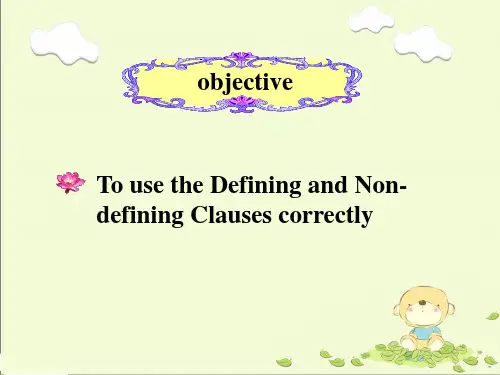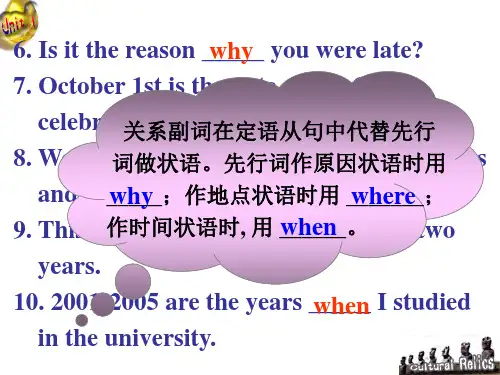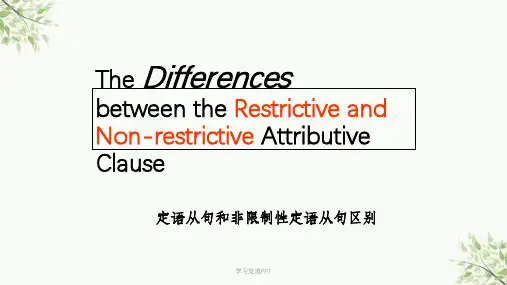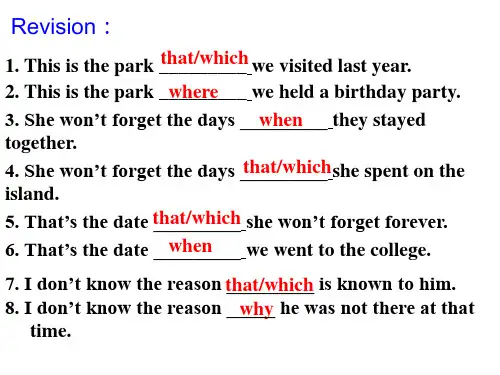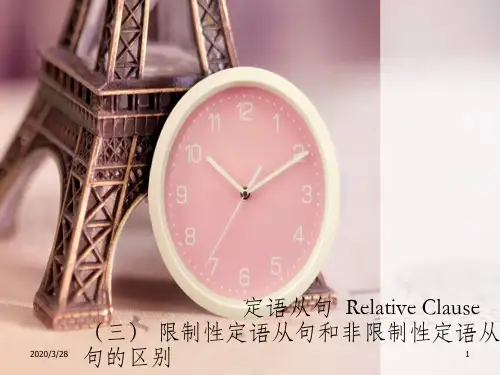限制性和非限制性定语从句区别
(3)翻译不同
含有限制性定语从句的句子一般先译从句,后译先行词,即把从句放在先行词前,译为“……的+先行 词”。含有非限制性定语从句的句子一般先译主句,后译从句,译成两个分句。
He is the man who lives next to me.他就是住在我隔壁的那个人。 He is a warm-hearted man , who lives next to me.他是个热心肠的人,住在我的隔壁。
用正确的关系词填空:
小试牛刀
1.It is a truly delightful place,________looks the same as how it looked 100 years ago
with its winding streets and pretty cottages.
2.This woman has set a good example to her son, ________is a really lucky guy.
定语从句2
限制性和非限制性定语从句
第1章 限制性定语从句 非限制性定语从句
定语从句分类
1 限制性定 语从句
2 非限制性 定语从句
限制性定语从句
比较这两个句子: She despised people.(她看不起人) She despised people who flattered her.(她看不起吹捧她的人)
通过以上句子,你能总结出这两 类定语从句的用法区别吗?
限制性和非限制性定语从句区别
(1)形式不同
限制性定语从句与主句之间无逗号隔开;非限制性定语从句与主句之间通常有逗号隔开。 This is the best novel that I have ever read.这是我读过的最好的小说。 I read a novel last night, which is very interesting.我昨天晚上读了一本小说,它非常有趣。

